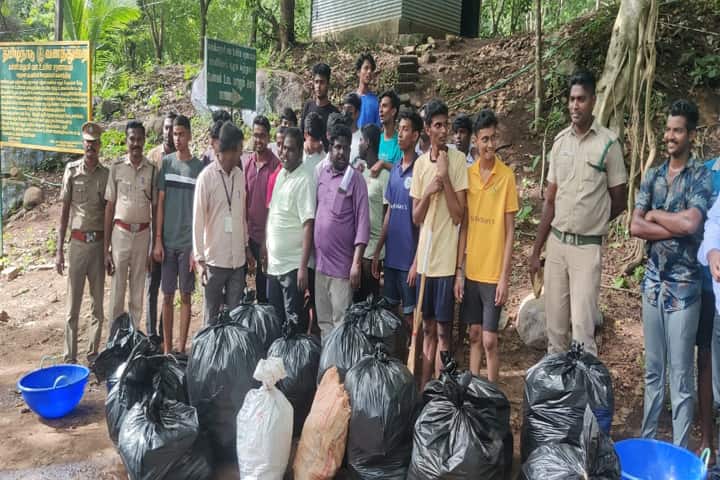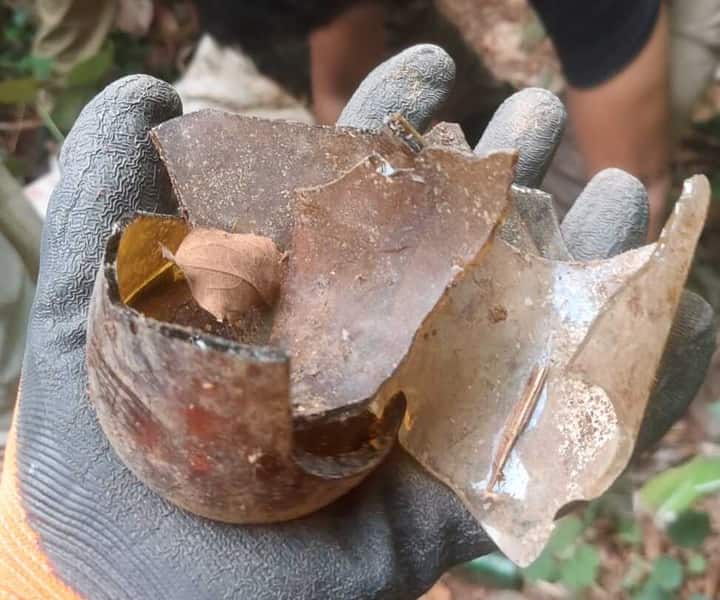There is more to forest management than just protecting the wildlife, trees and vegetation. These areas need to be cleaned of garbage and other pollutants like plastic and glass bottles to keep them safe for animals and people who visit them. This is what Tamil Nadu Forest Department did in Kanniyakumari as they organised a clean-up initiative along with Kanniyakumari Nature Foundation recently.
The specific focus of the clean-up drive was glass bottles. When asked why, M. Ilayaraja, Kanniyakumari District Forest Officer told India Narrative “Broken and sharp glass bottles in forest areas pose physical hazards to wildlife. Animals can inadvertently come into contact with them, resulting in injuries, cuts, infections, and even amputations. These can severely impair their ability to move, hunt, or defend themselves, making them more vulnerable to predation or other environmental threats. These wounds can become a breeding ground for infections, further compromising the health and well-being of wildlife.”

He added that transparency of glass bottles and their pieces makes them go unnoticed on the forest floor and those deliberately shattered by some individuals are even more hazardous.
The DFO further said: “Moreover, removing glass bottles from forests offers the advantage of being able to send them to recycling factories. Unlike plastic garbage, which often ends up in landfill sites, glass bottles can be recycled and reused, giving them a new life.”
In the Lower Kodayar region, Pechiparai in KWS, a group of 26 volunteers were divided into teams with each assigned a specific area within the forest. They systematically combed their area and worked tirelessly, collecting one tonne of glass bottles.
The renowned tourist destination Ulakkai Aruvi, which was plagued by extensive amounts of plastic garbage and glass bottles was also part of the drive. Here 20 volunteers collected 1.5 tonnes of glass bottles.
At Kalikesam waterfalls, the Forest Department officials along with students from Stella Mary’s College of Engineering collected over a tonne of garbage.

Stressing on the need for the clean-up drive, Ilayaraja said: “Considering the importance of a pristine ecosystem which is a habitat of organisms and helps in regulating climate, maintaining water quality, controlling erosion, pollination of plants and providing fresh water, air and fertile soil, while acting as carbon sinks, it is mandatory to keep them clean and free of garbage.”
The garbage material on decomposition releases toxic chemicals and pollutants into the soil, water sources and vegetation and this has far-reaching consequences for animals and humans. Apart from disrupting the ecosystem they can also lead to injury and kill wildlife.




















